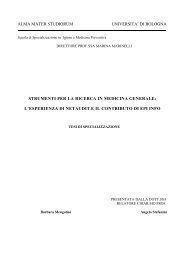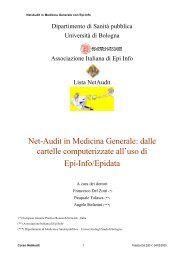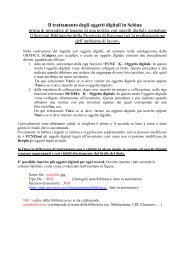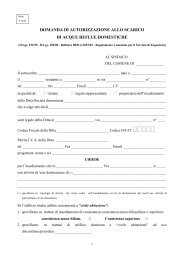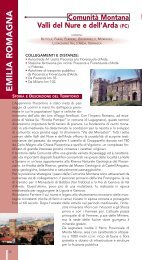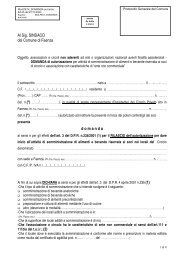What is clinical governance? - R@cine
What is clinical governance? - R@cine
What is clinical governance? - R@cine
Create successful ePaper yourself
Turn your PDF publications into a flip-book with our unique Google optimized e-Paper software.
<strong>What</strong> <strong>is</strong><br />
<strong>clinical</strong> <strong>governance</strong>?<br />
<strong>What</strong> <strong>is</strong> <strong>clinical</strong> <strong>governance</strong>?<br />
Figure 1. The elements<br />
of <strong>clinical</strong> <strong>governance</strong><br />
R<strong>is</strong>k<br />
management<br />
Openness<br />
Many ex<strong>is</strong>ting activities will continue<br />
within the new system of <strong>clinical</strong><br />
<strong>governance</strong>, but the new system <strong>is</strong><br />
designed to promote the spread of<br />
quality in <strong>clinical</strong> practice within and<br />
between organ<strong>is</strong>ations.<br />
The elements of<br />
<strong>clinical</strong> <strong>governance</strong><br />
Clinical <strong>governance</strong> <strong>is</strong> composed of the<br />
following elements (see Figure 1):<br />
● Education.<br />
● Clinical audit.<br />
● Clinical effectiveness.<br />
● R<strong>is</strong>k management.<br />
● Research and development.<br />
● Openness.<br />
Education<br />
In the modern health service, it <strong>is</strong> no longer<br />
acceptable for any clinician to abstain from<br />
continuing education after qualification –<br />
too much of what <strong>is</strong> learnt during training<br />
becomes outdated too quickly. Different<br />
Education<br />
and<br />
training<br />
Clinical<br />
<strong>governance</strong><br />
Research<br />
and<br />
development<br />
Clinical<br />
audit<br />
Clinical<br />
effectiveness<br />
systems have emerged to support continuing<br />
professional development by different<br />
practitioners – Post Reg<strong>is</strong>tration Education<br />
and Practice (PREP) for nurses, Postgraduate<br />
Education Allowance (PGEA) for GPs,<br />
continuous professional development (CPD)<br />
for hospital doctors, for instance – and some<br />
practitioners have become trained educators<br />
to support such approaches (for example, GP<br />
tutors). In addition, some specialities have a<br />
requirement for considerable periods of<br />
postgraduate study before accreditation –<br />
medical specialities and special<strong>is</strong>t nursing, for<br />
example. For other practitioner groups, such<br />
as pharmac<strong>is</strong>ts, physiotherap<strong>is</strong>ts and<br />
occupational therap<strong>is</strong>ts, education has been<br />
the responsibility of the employer and the<br />
relevant professional body.<br />
Most of th<strong>is</strong> education activity has been<br />
focused on the individual practitioner and h<strong>is</strong><br />
or her own practice; the need to educate<br />
groups of practitioners together for the roles<br />
they fulfil together has not been well<br />
addressed. One of the reasons has been the<br />
way education has been funded. Medical and<br />
dental education <strong>is</strong> the responsibility of the<br />
dean and h<strong>is</strong> or her staff using centrally<br />
allocated funds – the MADEL funding<br />
stream. Non-medical education has been the<br />
responsibility of Health Authorities through<br />
the non-medical education and training<br />
consortia – the NMET stream.<br />
In NHS Trusts, the continuing professional<br />
development of clinicians has been the<br />
responsibility of the Trust. It has also been the<br />
professional duty of clinicians to remain up to<br />
date. The situation has been more<br />
complicated in primary care:<br />
● There have been financial inducements to<br />
encourage GPs to undertake continuing<br />
professional development (PGEA scheme).<br />
● Health Authorities have supported and<br />
provided training for members of the primary<br />
care team.<br />
● There has been a professional requirement<br />
for continuing professional development for<br />
nurses and other clinicians working in<br />
primary care.<br />
2



